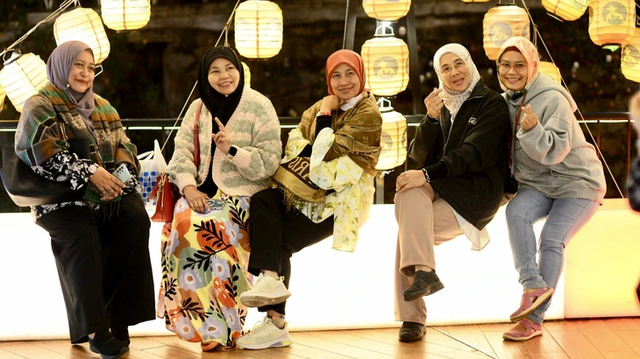
Vietnam urged to develop halal tourism
Halal tourism is emerging as a major global travel trend, with experts projecting it could contribute up to US$350 billion to the global tourism industry by 2030. How will Vietnam position itself to tap into this expanding market?
Still relatively new in Vietnam, halal tourism refers to services that meet the religious needs of Muslim travelers.
These include halal-certified food, prayer facilities, privacy, and accommodations for religious practices such as Ramadan observance.
At present, Vietnam's halal tourism infrastructure is underdeveloped compared to other Southeast Asian countries, making it less competitive in attracting Muslim visitors.
Speaking at the 'Prospects for Halal Tourism Development in Hanoi' seminar on Tuesday, Ramlan Osman, director of the Vietnam Halal Center, noted there are more than 1.9 billion Muslims globally, accounting for around 30 percent of the world's population.
Since the COVID-19 pandemic ended, Muslim tourism has quickly rebounded, especially among high-spending travelers.
In 2024 alone, an estimated 160 million Muslim tourists traveled internationally.
The global halal tourism market is expected to reach $276 billion this year and grow to $350 billion by 2030.
In response, many countries are developing strategies and making investments to capture this opportunity.
According to Trinh Thu Ha, rector of the Hanoi Trade and Tourism College, Thailand and Singapore are leading the region in attracting Muslim tourists.
Vietnam has strong potential to enter this market.
While Hanoi has advantages in landscape, cuisine, and tourism infrastructure, its halal services remain limited.
To meet global demand, Vietnam must develop halal tourism in line with international standards and market needs.

Muslim tourists are still a relatively new segment for Vietnam's tourism. Photo: Quang Dinh / Tuoi Tre
Ramlan Osman explained that Muslim-friendly tourism must include certified halal food, prayer rooms, services during Ramadan such as iftar meals, and private spaces for family activities.
Muslim-friendly accommodations should include at least one halal-certified restaurant, prayer rugs and Qur'ans in guest rooms, prayer direction indicators, up-to-date prayer times, and gender-separated recreational facilities.
Hotels should also provide iftar buffets during Ramadan, pre-dawn meals for fasting guests, private prayer areas, and staff trained in halal hospitality practices.
"Vietnamese food is delicious, but most Muslim visitors cannot eat it unless it's halal-certified," Osman said.
Dinh Cong Hoang, head of the Middle East and West Asia studies unit at the Institute for South Asian, West Asian and African Studies, said Vietnam must build a full halal ecosystem.
This includes tourism products, infrastructure, trained staff, government support, and a clear development strategy.
"Muslims are the fastest-growing consumer segment globally," Hoang added.
"Ignoring this market means missing a major opportunity to increase revenue and profit."
He suggested that Hanoi, Ho Chi Minh City, and Da Nang could serve as pilot cities for halal tourism.
Hanoi, in particular, has the potential to become a halal hub thanks to its cultural attractions, improving infrastructure, and growing number of halal-compliant hotels.
Thanh Ha - Nguyen Hien / Tuoi Tre News
Link nội dung: https://news.tuoitre.vn/vietnam-urged-to-develop-halal-tourism-103250417135941812.htm